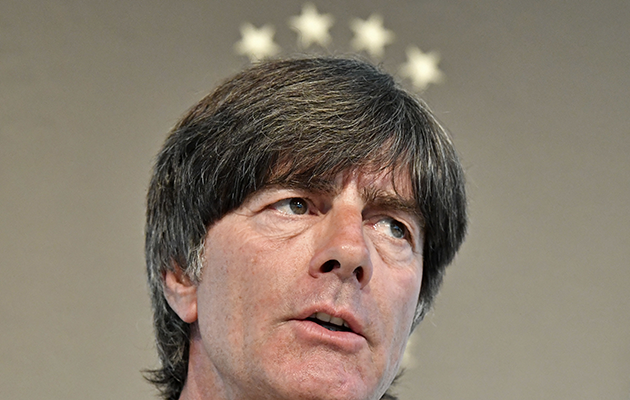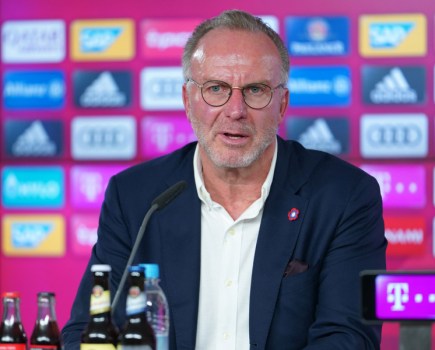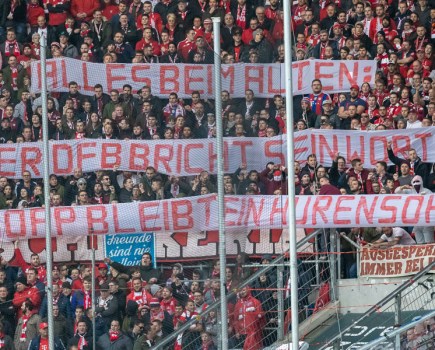1. As easy as one, two, three
Now unbeaten in 24 World Cup qualifiers – their last defeat in the sifting process being that never to be forgotten night in September 2001 when humbled 5-1 by England in Munich – Germany’s defence of their Brazil 2014 title got off to the best possible start on Sunday with a 3-0 canter in Oslo against a surprisingly insipid Norway.
Including six players in their squad who earn their living in German football, the home side were chasing shadows from start to finish and in the final analysis, were lucky only to concede three: a Thomas Müller brace and a neat Joshua Kimmich finish, the young Bayern right-back’s opening entry in the national team scoring log. Incredibly for such a prolific marksman as Muller, his weekend double were his first international goals for ten long months, a trek across the desert symbolised by his poor Euro 2016.
“At the Euros, he (Müller) worked unbelievably hard, yet never scored,” declared Bundestrainer, Joachim Löw in a post-match press conference at the Ullevaal Stadium.
“You had the feeling, he was trying to force a goal and wasn’t playing freely. I’d have preferred him to score in France, but naturally his goals today were important too.”
https://www.youtube.com/watch?v=dFfYqGlpTAI
2. A Neuer dawn.
One of only nine Germany/West Germany goalkeepers ever to wear the captain’s armband, Bayern Munich’s Manuel Neuer is to be the side’s new long-term skipper following the international retirement of Bastian Schweinsteiger, who bid a tearful farewell in a 2-0 friendly victory over Finland last week.
The 30-year-old Neuer already has led the Nationalmannschaft on several occasions and is the first custodian to be handed the role since Oliver Kahn in 2004.
“For me, Manuel Neuer is the logical successor to Bastian Schweinsteiger,” explained Jogi Löw. “He has everything I wish for in a captain. His sporting performances are outstanding, he’s always there for the team, he works closely with others and is an absolute role model.”
Many in German media land, had made Neuer’s club colleague, centre-back, Jerome Boateng, the favourite to be the next ‘Spielführer‘. But did the latter just want it a little too much, making the strategic error of publicly throwing his hat into the ring, talking about becoming Deutschland’s first coloured captain. Such self-promotion might not have gone down well with Löw and tellingly Boateng was not even been nominated for the vacant spot on the national team players’ committee – that honour going to Toni Kroos.
3. Bundesliga meets Bloomberg
National team general manager, Oliver Bierhoff, has come out fighting after leading Bundesliga clubs accused the federation, the DFB, of encroaching onto their sponsorship and marketing turf.
Both Bayern Munich and Dortmund are becoming increasingly annoyed at seeing their players appear in national team ad campaigns for rivals of their own commercial partners and Bayern chairman, Karl-Heinz Rummenigge has made his position perfectly clear (“While we’ve an important contract with Audi, the DFB were promoting Mercedes Benz here, there and everywhere during the Euros – and with our players. It cannot and will not carry on like this in the future.”).
Cue an equally forthright response from Bierhoff, arguing that the club versus country relationship is a two-way street.
“What bothers me is the claim that the DFB only takes. We give back our share. Players in the national team become much more popular and the clubs in turn benefit. The market value of a player is really boosted at tournament time. With all respect to Dortmund, when they go on tour to China, the fans out there do not turn out because of what happened in a league match against Mainz. They want to see the guys who shone at major tournaments.”
4. Süle plays it cool
Talented young Hoffenheim and Germany centre-back international, Niklas Süle clearly is not one to be swayed by a host of big-name suitors beating a path to his door.
According to Sport Bild magazine, the 20-year-old – who made his full debut against Finland last week – was atarget this summer for Dortmund, Leverkusen, Wolfsburg, Liverpool and a number of leading Italian sides. Yet still refused to budge.
“I need to stay in the environment I’m used to and first must concentrate on consistently playing to a good standard here.”
Extraordinarily refreshing.
5. Stately does it in the Bundesliga marketplace
In contrast to the manic and inflationary comings and goings in the English Premier League the last 48 hours of the German transfer window turned out to be a relatively restrained affair.
Loan moves proved particularly popular, Greek centre-back, Kyriakos Papadopoulos leaving Leverkusen for RB Leipzig, Stoke City stopper, Philipp Wollscheid returning to his native land to play for Wolfsburg and Schalke bringing in Ukrainian left-winger, Yevhen Konoplyanka, who after failing to make an impact last term at Sevilla, desperately needs a career relaunch. The ex-Dnipro star can, on his day be a real matchwinner and just might find the more open Bundesliga style to his liking.
Among the permanent deals, the most prominent were Hamburg’s 7.5 million euro swoop for Brazilian Olympic team left-back, Douglas Santos (ex-Atletico Mineiro); Augsburg’s acquisition of Austrian central defender, Martin Hinteregger from Salzburg and former Arsenal winger, Serge Gnabry, opting to swop North London for Werder Bremen.
Gnabry, who hit six goals for Germany at the recent Olympics, is not, however, expected to stay long in the northern city. Rumours abound that Bayern Munich part-financed the deal and promptly will ship him to Bavaria should he produce at the Weserstadion.







